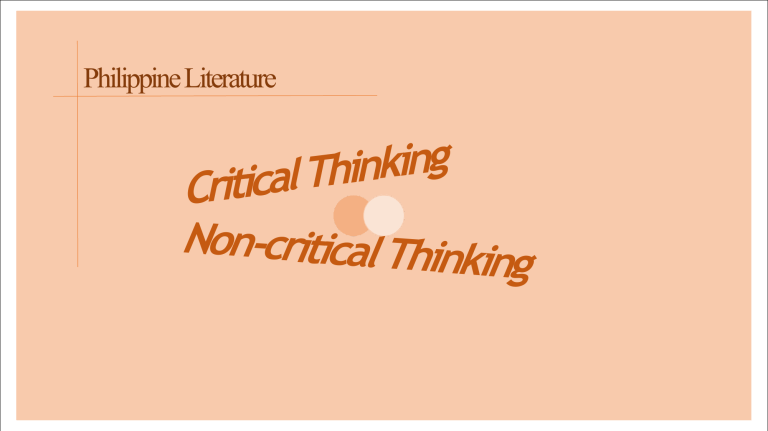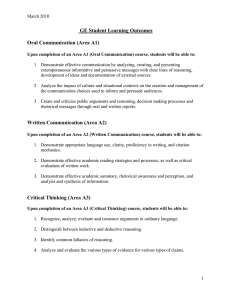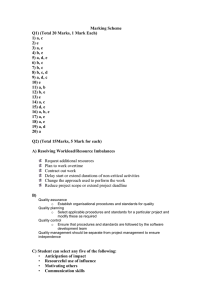
Philippine Literature g n i k n i h T l a Critic Non-critical Think ing Understanding Critical thinking has roots in the teachings of Socrates more than 2,500 years ago. This established the importance of seeking evidence, questioning assumptions and examining reasoning Renaissance period Italy in the 15th and 16th centuries, European scholars begins to examine critically the nature of religious belief, art, law and freedom. Non-critical thinking. Usually accomplished by non-skeptical persons who simply believe, rely on others as source material Critical Thinking Characteristics ü ü ü ü Accept responsibility & accountability for your actions Accept sound arguments Critical thinkers overcomeconfusions and ask questions Base their judgments onevidence Acknowledging the role you play in your own life – the good bits and the bad bits Accepting conclusions on certain arguments even if rejecting your own because it’s valid Asks questions to ensure that you understand the instructions given Check facts first before giving opinions Non-Critical Thinking Characteristics ü ü ü ü ü ü ü Unwilling tolisten Reluctant to question Rush conclusion Indicates intelectual laziness Lack of reasoning skills Use invalid evidence tosolveproblems Take thesimplistic view of theworld CHECKPOINT Non-critical Thinking this lacks evidence, based on the information given Critical Thinking browsed further information about the material Benefits of Critical Thinking Daily Life: ü helps us to avoid foolish personal decisions ü promotes an informed and concered citizenry capable of making good decisions on important social, political and economic issues


